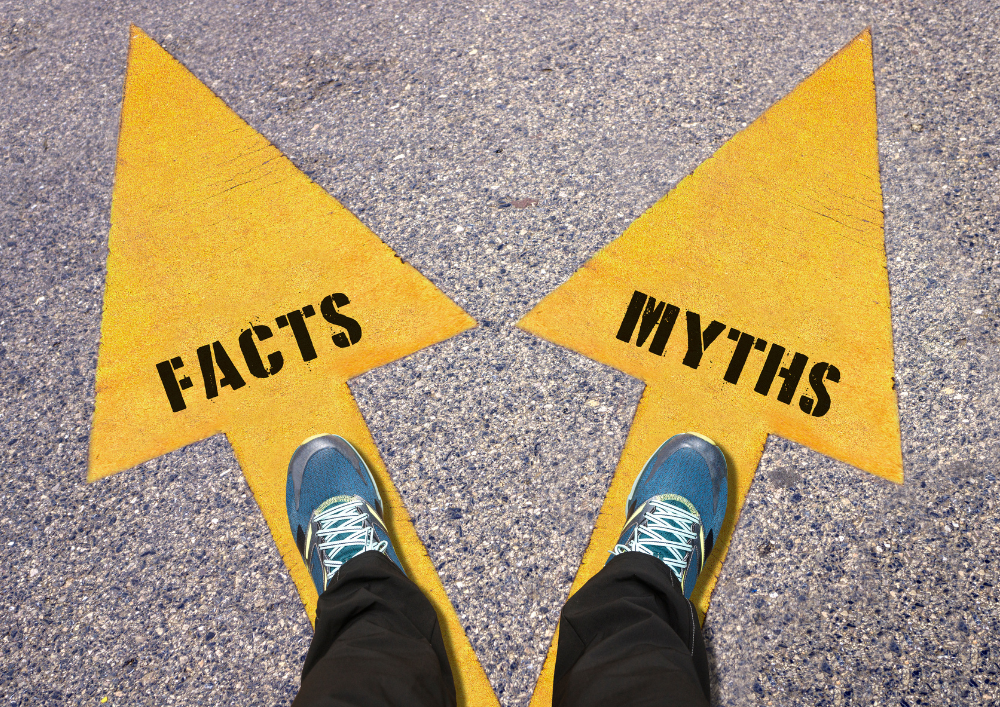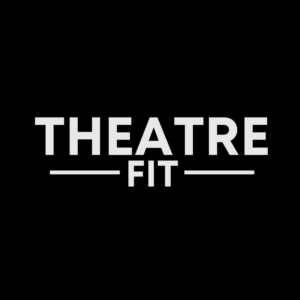
Have you ever met someone who eats a highly nutritious healthy diet that’s moody, grumpy & low in energy?
Have you ever met someone who eats the complete opposite – a diet of beige – who is energised & positive?
I bet now as you’re reading this, you can think of at least 1 person in your life who takes care of their health and at least 1 person who doesn’t. Do you notice a difference in their weight, body composition, skin and hair? If you know them well, you may even know which one of the two encounters more health issues (and thus, requires more medication) and the other who can recover quickly.
You are what you eat is a common phrase, and a very true one.
If you eat a diet that’s varied with nutrients, it’s hard to imagine you won’t be better off than if you eat a beige diet.
Nutrition is a big piece of the pie (excuse the pun) when it comes to health. However there’s other factors such as exercise, sleep & stress that play a part too. Even if you hit the nail on the head with all 3 of these – if you’re overeating or not consuming the right foods to support your body, the 3 areas are almost redundant.
When I speak to backstage theatre professionals, 99% of them have a goal of at least one of the three below:
These are common health & fitness goals. What makes backstage theatre professionals stand out is the desire to make these results sustainable with their lifestyle. When I worked with City workers in my early career as a Personal Trainer, the majority of them were looking for weight loss as quickly as possible and not thinking long term.
I’m yet to meet one backstage theatre professional with the same outlook. This is one of the reasons I love working with them – they have the same values of longevity.
Making results sustainable is achieved by having the right knowledge. Without the knowledge, you won’t be able to make decisions for yourself later down the line.
The perfect example of this is a woman I worked with who is as a Deputy LX in the West End – she worked with a previous trainer previously who prescribed her a (restrictive) meal plan but didn’t tell her why to eat the foods.
She followed him – like the good client she is – but once she finished working with him, she was back to square 1 where she didn’t know what to do nutrition wise.
She didn’t know what to eat if she forgot to bring her prepped meal into work. Or how to navigate a meal out.
So, we all know knowledge is important. When we need knowledge on nutrition – where do we turn to?
Social Media (some fitness professional who is in great shape, we assume they must know what they’re talking out)
Books or other health gurus who have the title ‘Dr’ in their name (did you know, some nutrition gurus out there ARE Drs, but they’re Drs in another field such as a chiropractor? It’s the same as assuming a Stage Manager and a LX operator know the same thing.)
All of these points of information contradict each other.
Eat meat.
Don’t eat meat.
Eat vegetables.
Don’t eat vegetables.
Fasting is good for you.
Fasting is bad for you.
Eat carbs.
Don’t eat carbs.
It’s confusing & overwhelming to figure out who is right and who is wrong.
So where to start?
I’m with Maria VonTrapp in that we should start at the beginning – but we don’t know where the beginning is. So today, I’m going to debunk 4 popular nutrition myths that I get asked a lot:
A calorie is a measurement – a measurement of how much energy it takes for an item of food to heat up (specifically 1 gram of water by 1 degree celsius). It’s a measurement of energy. Despite where it comes from, it’s still a calorie. 100 calories of chicken is the same value as 100 calories of sweets. It’s both 100 calories. The difference, which is where people get this confused, is that consuming 100 calories of chicken will have a different effect on consuming 100 calories of sweets. 100 calories of chicken will be higher in protein, more satiating and have more nutrients than 100 calories of sweets, which will be easy to consume (because not a lot is required).
This is prevalent in dieting but also not to forget overall health.
If you’re looking to lose weight, you need to be consuming less calories than you’re expending so it’s important to eat foods that are more ‘calorie smart’ – what’s going to keep you fuller for longer? 100 calories of chicken or 100 calories of sweets?
Sugar itself is a source of energy that the body relies on to function and the body doesn’t recognise where that it comes from. It doesn’t recognise if the sugar is from some pineapple or whether it’s from a can of coke-cola. All it knows is that it’s energy to be used.
Does this mean I’m saying for you to go crazy with sugary food? Not at all. There are other factors to consider. Let’s look at the pineapple and coke-cola again:
Pineapple – contains sugar, also contains vitamins, is good for digestion, has fibre.
Coke-Cola – contains sugar, no vitamins or nutrients, contains caffeine (which can trigger anxiety for some), no fibre.
And looking at a serving of pineapple to a can of coke-cola, the calories between the two will vary.
This may be an unpopular or triggering point, but important.
Healthy eating is important.
Calorie total is also important.
It’s important to eat a varied diet with nutrients for health.
It’s also important to ensure you’re not overeating.
Obesity is a big killer in America and the Western World and leads to all sorts of health problems. Problems that can be solved by the individual with the right information & support.
People don’t get obese just by chance or genetics (another myth), they become obese by being in an energy surplus: eating too much and not moving enough.
In some cases, switching to a healthier diet may be the reason someone loses 30lbs +. You may even know someone who did this and lost loads of weight just by eating healthy – they didn’t need to count calories and it was pretty easy. I know plenty of people who have done this!
I applaud their results, at the same time it’s important to understand why. The reason they lost weight was because they put themselves in a calorie deficit which they were most likely unaware of.
By opting for healthier and more nutrient dense food (such as lean meats, veg and salad) over fast food (pizza, burgers, fries) it’s very easy to be in a deficit.
So of course, food choices matter for health. But if you’re going to be eating LOTS of healthy & nutrient dense food that takes you into a calorie surplus, you won’t lose weight.
This is something my parents taught me from a young age. My family were never wealthy, nor were we poor. My brother and I always had a roof over our heads, clothes & food.
My mum grew up in the Philippines (she’s half Spanish & half Filipino) where a lot of the traditional recipes have been created to make food go a long way because the majority of Filipinos are poor and need food to last them as long as possible.
For my brother & I growing up, there was always meat or fish, vegetables and some form of rice, potato or pasta in our meals.
I appreciate the increase in prices in everything nowadays, this can be a sensitive subject for many. But it is possible to eat well while on a budget. Eating well doesn’t mean buying from the superfood aisle or from overpriced organic stores, which are marketed to be the best choice of food.
Bulk buy your meats/fish, it may be a bigger upfront cost but per meal it’ll be cheaper.
Shop owned items are usually just as good as the branded stuff, for half the price (think tinned tomatoes, beans, tuna etc.)
Compare pre-packaged veg to lose veg – I learnt this in Europe. I’m ashamed to admit (and I hope my mum isn’t reading this!) I used to be the person who bought pre-packaged veg because it was easier. Buying a pack of pepper as opposed to individual ones but then having to throw half of it away because I didn’t use them all. When I’ve lived in central Europe, it’s common to see people buy loose fruit & veg – they bought only what they needed. It’s cheaper & you don’t waste anything.
Online order if you can – ordering a week’s worth of food is cheaper & more convenient than having to buy every few days. When I’m in the UK, I do this every single week and it saves me money and decision making. It means I buy all the ingredients I need and I don’t fall into the trap of going to the supermarket when I’m hungry and buying loads of snacks! I personally use Sainsburys because I think the quality of their food is good and it doesn’t break the bank, I also like their Nectar rewards and prices so it becomes cheaper.
These are just 4 myths that I get asked about a lot – there’s 100+ more I could talk about!
I understand that nutrition can be hard to navigate because of the information out there, and that’s before we start talking about the difficulties of theatre & live events professionals!
For my next article, I’m going to talk about saving time on cooking so you can have a hearty meal throughout your busy working schedule.
If you’ve found this article insightful or you have questions about nutrition, I’d love to hear from you! DM me either on
Your Health versus Your Career


Claudia is a Stage Manager turned Online Fitness Coach at ‘TheatreFit’ working exclusively with backstage theatre professionals and live events crew. Her own health & fitness struggles while working a busy & unpredictable schedule meant she made a lot of mistakes which further impacted her health and career. This is what inspired her to become a coach for backstage theatre professionals and live events crew - so they wouldn’t make the same mistakes she did! Claudia works remotely 1-1 and loves that every single client is different and comes with their own situation and circumstances. Her favourite part of the job is seeing her clients' transformations in 6 months - going from not knowing where to start to being well equipped and educated with nutrition and exercise.
Read Full Profile© 2021 TheatreArtLife. All rights reserved.

Thank you so much for reading, but you have now reached your free article limit for this month.
Our contributors are currently writing more articles for you to enjoy.
To keep reading, all you have to do is become a subscriber and then you can read unlimited articles anytime.
Your investment will help us continue to ignite connections across the globe in live entertainment and build this community for industry professionals.